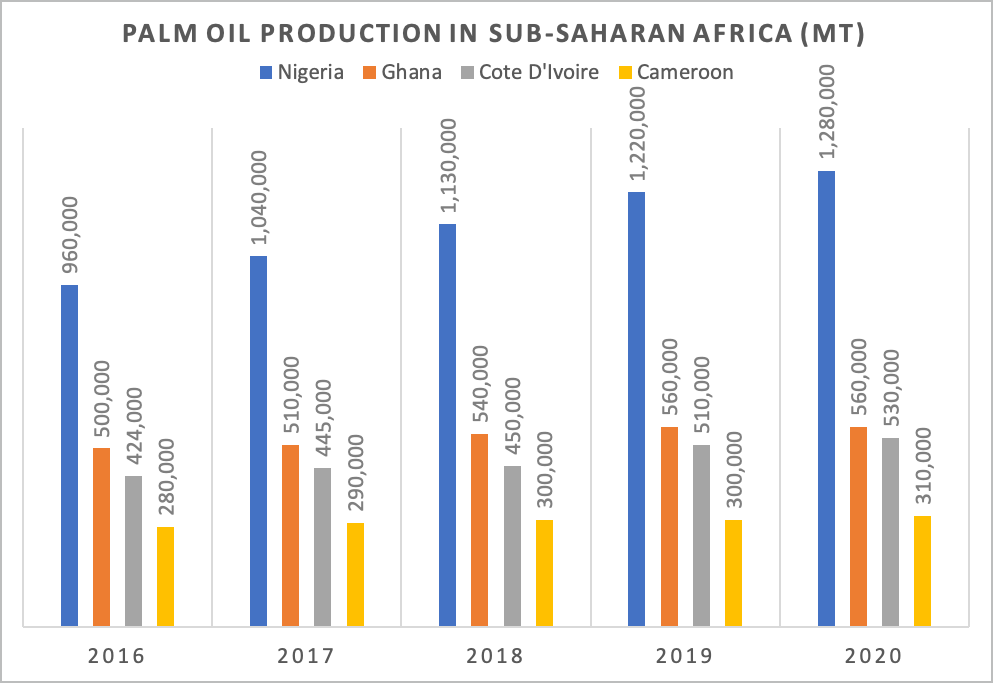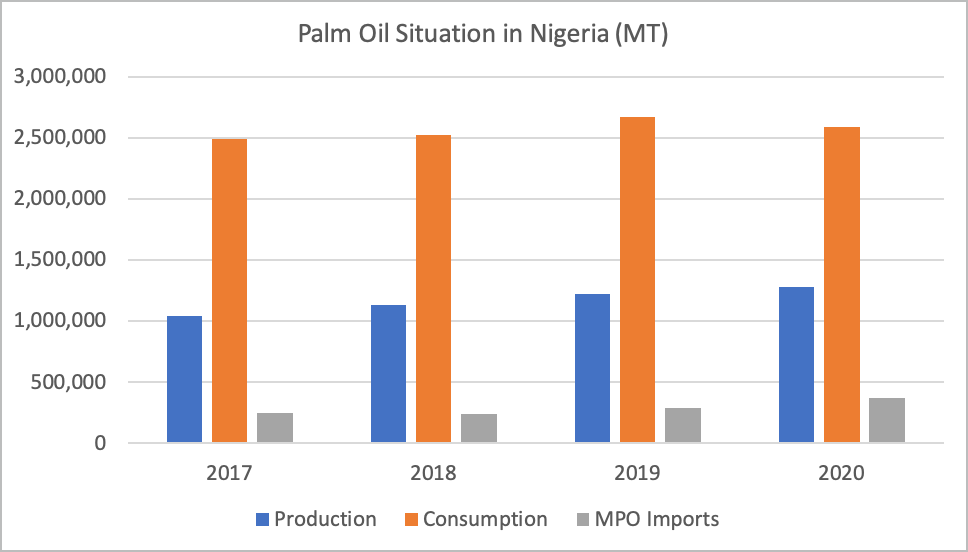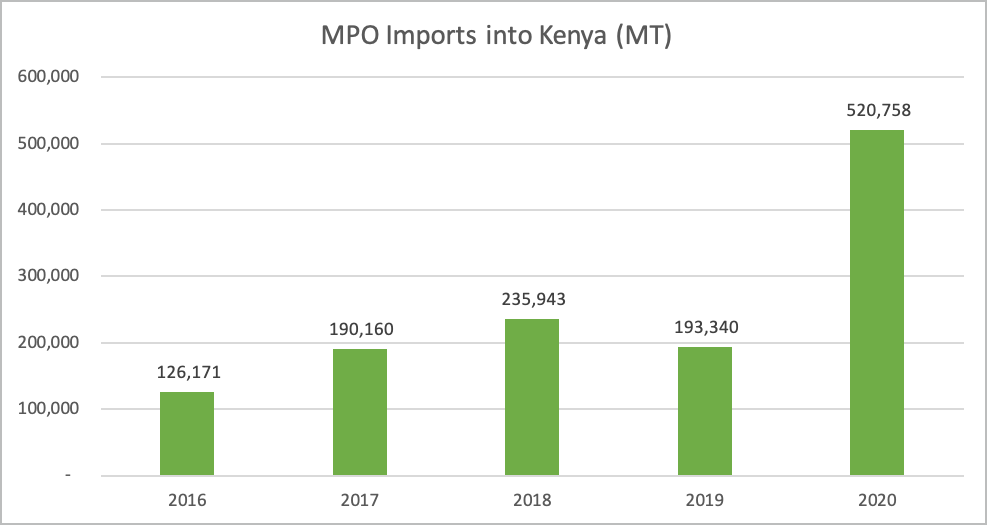Good majority of the countries in Sub-Saharan Africa is located around the equator, which makes the climate ideal for palm oil production. Nigeria is the largest palm oil producing country in Sub-Saharan Africa with 1.28 Million MT of palm oil production last year. Other countries like Ghana, Cote D’Ivoire and Cameroon produced about 560,000 MT, 530,000 MT and 310,000 MT of palm oil respectively. With the rapid growth in population, the demand for oils and fats in Sub-Saharan Africa has been increasing over the years. Sub-Saharan Africa heavily relies on crude palm oil, crude palm olein and RBD palm olein in their daily usages.

Source: Oil World
For Malaysian palm oil to continue to thrive in this region, a preferential G2G trade agreement will help in increasing Malaysian palm oil export into this region. Nigeria being the largest palm oil producing country in Sub-Saharan Africa, is also a net importer since it cannot meet the local demand. Nigeria imports about 52 percent of palm oil from other countries, mainly from Malaysia and Indonesia.

Source: MPOB & OilWorld
Nigeria is also known as a re-exporting hub, where many goods are being re-exported to neighboring countries, especially to the landlock countries nearby. Through a G2G trade agreement, traders will be able to buy palm oil from Malaysia with low to no import tariff, compared to the 35 percent that is currently being imposed.
This will position Malaysia on a fair ground with major players from other countries, namely Indonesia. A government-to-government trade agreement with Nigeria will not only increase market share in Nigeria, but also help penetrate the neighboring landlock countries. Nigeria is a member of ECOWAS treaty with 14 other countries from West Africa. Through this treaty, goods move from one country to another with no import tariff imposed within the ECOWAS countries. Malaysia will be able to penetrate neighboring landlock countries via Nigeria, which is harder logistically and monetarily to access otherwise.
Similarly, a government level trade agreement with Kenya will also be beneficial to Malaysian palm oil industry in the similar manner. Kenya, a country from the Eastern African region, is a major Malaysian palm oil importer. In 2020, Kenya imported a total of 520,758 MT of Malaysian palm oil, a whooping 165 percent more than the previous year.

Source: MPOB
While Kenya imports to meet its local edible oil demand, it is also a re-exporting hub in the eastern region. Similar to Nigeria, Kenya re-exports goods to their neighboring landlock countries through Port of Mombasa. Port of Mombasa is the biggest international seaport in east Africa. Port of Mombasa handles cargo for the eastern and central African regions, which include Uganda, northern Tanzania, South Sudan, Rwanda, Burundi, and eastern Democratic Republic of Congo. A preferential trade agreement between Kenya and Malaysia will help boost Malaysian palm oil export into these sub-regions.
It is notable that Indonesia entered a preferential trade agreement with Mozambique in late 2019. Though the agreement is yet to be in effect and waiting for ratification by both countries, this agreement is expected to reduce tariffs on 200 over Indonesian products, including palm oil entering into Mozambique. This move was done in efforts to boost trade volume between the two nations.
Prepared by Karthigayen Selva Kumar
*Disclaimer: This document has been prepared based on information from sources believed to be reliable but we do not make any representations as to its accuracy. This document is for information only and opinion expressed may be subject to change without notice and we will not accept any responsibility and shall not be held responsible for any loss or damage arising from or in respect of any use or misuse or reliance on the contents. We reserve our right to delete or edit any information on this site at any time at our absolute discretion without giving any prior notice.

